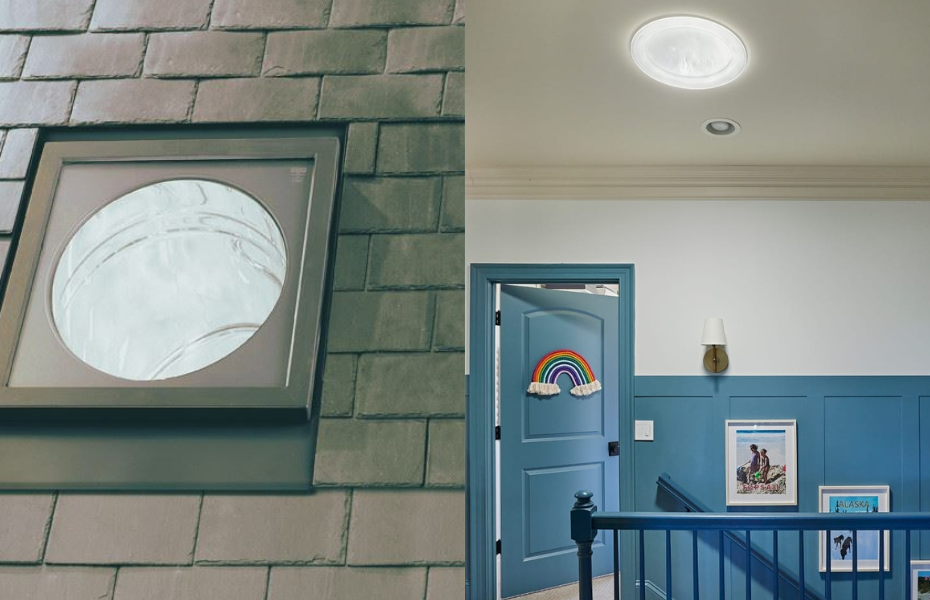Light tunnels, also known as sun tunnels or solar tubes, have gained popularity in recent years as an innovative way to bring natural light into interior spaces.
These tubular devices capture sunlight from outside a building and channel it into dark or dimly lit areas, providing illumination without the need for electric lighting during daylight hours.
But are light tunnels truly effective? Let’s explore their advantages, limitations, and overall effectiveness to answer this question.
Advantages of Light Tunnels
1. Energy Efficiency
One of the key benefits of light tunnels is their ability to reduce the need for artificial lighting during the day. By harnessing natural sunlight, they lower energy consumption and utility costs. This makes them a sustainable option that aligns with eco-friendly building practices.
“Light tunnels offer an environmentally conscious way to light up your space without increasing your electricity bill.”
2. Enhanced Well-being
Natural light has been linked to several health benefits, such as improved mood, increased productivity, and better sleep patterns. Light tunnels allow occupants to experience these uplifting effects, creating a more comfortable and enjoyable indoor environment. Learn more about the mental health benefits of natural light.
3. Versatility
Light tunnels are suitable for various building types, including residential homes, commercial spaces, and industrial facilities. They can be adapted to different roof types and configurations, making them a flexible lighting solution for virtually any setting.
4. Cost-Effectiveness
Compared to traditional skylights or windows, light tunnels are often more affordable to purchase and install. Their simple design requires minimal maintenance, further reducing long-term costs. Read more about the size guide of Velux windows and how they compare to light tunnels.
5. Daylight Harvesting
Light tunnels use innovative technologies to capture and distribute sunlight efficiently. Some models have reflective surfaces or lenses that maximise light transmission, ensuring optimal brightness within interior spaces. Explore how Velux sun tunnels can enhance your home.
Limitations and Considerations
While light tunnels offer significant advantages, there are some limitations and factors to consider:
1. Dependence on Sunlight
Light tunnels perform best on sunny days, but their effectiveness may decrease in overcast or cloudy conditions. In areas with limited sunlight or frequent bad weather, you may still need supplementary artificial lighting. For a more consistent lighting solution, consider the solar-powered Velux windows, which offer similar benefits with added convenience.
2. Placement Challenges
Proper placement is crucial for maximising light capture. Factors such as roof orientation, obstructions, and shading need careful consideration during installation to ensure the best performance.
“The success of a light tunnel largely depends on its strategic placement on your roof much like the importance of adjusting centre-pivot Velux windows for optimal functionality.”
3. Aesthetic Impact
For some, light tunnels may not fit with their architectural preferences. Their presence on the roofline can alter the building’s visual appearance, which may not appeal to those who prefer more traditional or seamless lighting solutions. If you’re looking for a subtler option, Velux flat roof lights could be a more aesthetically pleasing alternative.
4. Installation Complexity
While installing a light tunnel is usually straightforward, it might require professional expertise, particularly when retrofitting an existing structure or navigating structural obstacles. DIY installation is possible, but it could be challenging for less experienced individuals. For professional installation tips, read our post on why hiring a professional for Velux window installation is crucial.
5. Maintenance Requirements
Although light tunnels require little maintenance, occasional cleaning is needed to remove dust or debris that may block light transmission. Additionally, periodic inspections of sealing and weatherproofing components are recommended to ensure durability and performance.
Conclusion
Light tunnels offer numerous benefits, making them a sustainable, cost-effective, and health-promoting lighting solution for interior spaces. While they come with some limitations, such as dependence on sunlight and placement challenges, their advantages often outweigh these drawbacks.Ultimately, whether light tunnels are “good” depends on individual preferences, building characteristics, and environmental factors. For those prioritising energy efficiency, well-being, and versatility, light tunnels represent a compelling option for optimising indoor lighting in both residential and commercial settings. If you’re looking for other lighting solutions, consider exploring Velux roof window upgrades or enhancing security with Velux security shutters.








